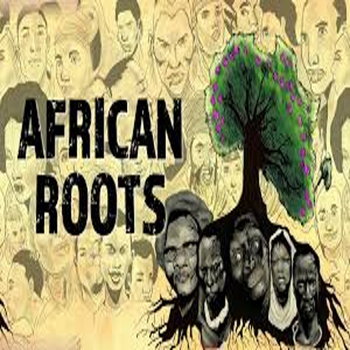
Siti binti Saad, the mother of taarab
Loading player...
A famous Zanzibari singer and composer, Siti binti Saad established taarab as a performing art and as a mouthpiece for women in East Africa. In the process, she became a pioneer in many ways.
When did Siti binti Saad live? Siti binti Saad was born in 1880 in the Fumba village on Zanzibar's main island of Unguja, which is today part of Tanzania. Born into a poor family, she sold pottery on the street before moving to Zanzibar town in 1911. There she started working with musicians and became famous as a taarab singer. She practiced music until old age and died in 1950.
What is Siti binti Saad renowned for? Siti binti Saad was a star of the taarab musical style, a music she herself greatly influenced. Endowed with a beautiful and powerful voice, she was invited to perform at the sultan's palace. But Siti binti Saad didn't only sing for the elite: She also performed for the working class and her house was a place of exchange and debate.
What was Siti binti Saad's pioneering role? efore her, taarab was usually performed by educated men who mostly sang in Arabic - the language of Zanzibar's small elite. Siti binti Saad, who had no formal education, was the first famous female singer of the genre and she popularized taarab music by using the Swahili language. Her role was such that the British Gramophone Company brought her all the way to Bombay, in India, to capture her voice, making her the first East African to ever make commercial recordings.
What are Siti binti Saad's songs about? Always listening to the working population, Siti binti Saad put their concerns to music. Her songs are about everyday life in Zanzibar and talk about actual events. They contain social criticism, denouncing class oppression, corruption, the abuse of women by men and the shortcomings of the legal system. To this extent, taarab, the women's performing art as it was shaped by Siti binti Saad, is highly political.
When did Siti binti Saad live? Siti binti Saad was born in 1880 in the Fumba village on Zanzibar's main island of Unguja, which is today part of Tanzania. Born into a poor family, she sold pottery on the street before moving to Zanzibar town in 1911. There she started working with musicians and became famous as a taarab singer. She practiced music until old age and died in 1950.
What is Siti binti Saad renowned for? Siti binti Saad was a star of the taarab musical style, a music she herself greatly influenced. Endowed with a beautiful and powerful voice, she was invited to perform at the sultan's palace. But Siti binti Saad didn't only sing for the elite: She also performed for the working class and her house was a place of exchange and debate.
What was Siti binti Saad's pioneering role? efore her, taarab was usually performed by educated men who mostly sang in Arabic - the language of Zanzibar's small elite. Siti binti Saad, who had no formal education, was the first famous female singer of the genre and she popularized taarab music by using the Swahili language. Her role was such that the British Gramophone Company brought her all the way to Bombay, in India, to capture her voice, making her the first East African to ever make commercial recordings.
What are Siti binti Saad's songs about? Always listening to the working population, Siti binti Saad put their concerns to music. Her songs are about everyday life in Zanzibar and talk about actual events. They contain social criticism, denouncing class oppression, corruption, the abuse of women by men and the shortcomings of the legal system. To this extent, taarab, the women's performing art as it was shaped by Siti binti Saad, is highly political.

